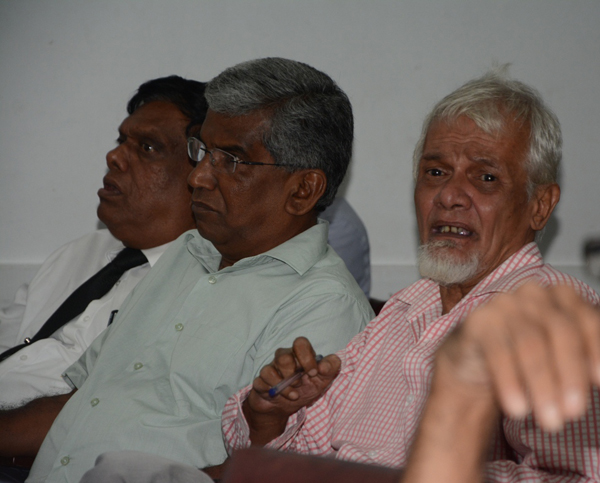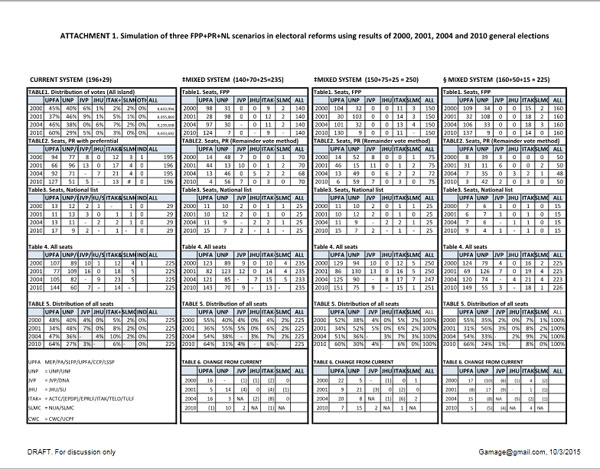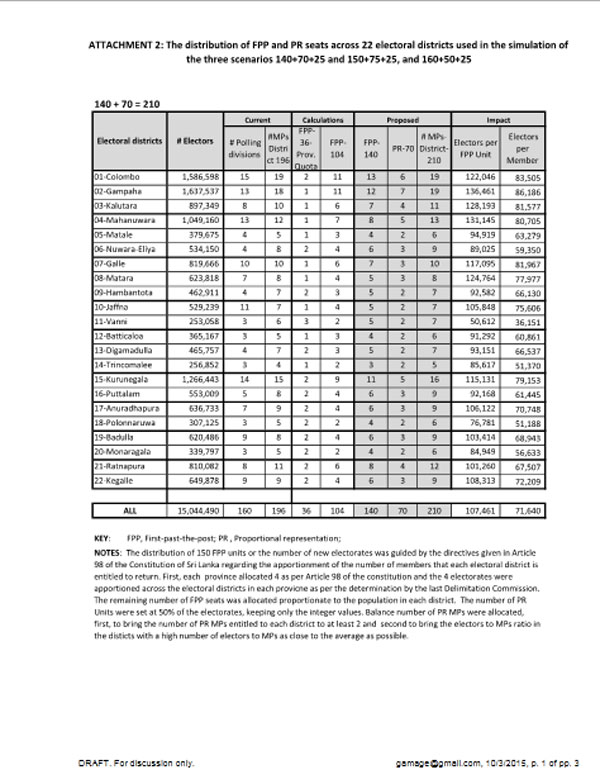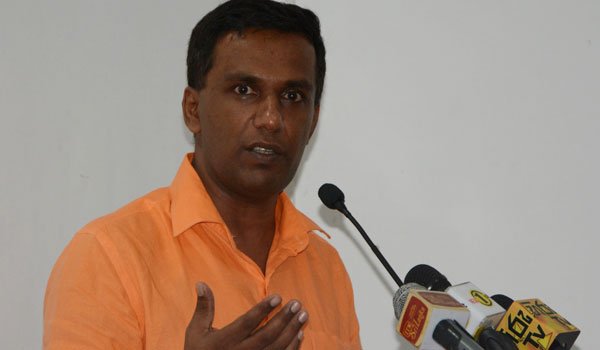President Sirisena’s manifesto
In his election manifesto, President Sirisena said that ‘Another serious problem that our Sri Lanka Freedom Party led government failed to address during the last twenty years is the change of the electoral system. The existing electoral system is a main spring encouraging corruption and violence. Candidates have to spend a colossal sum of money due to the preferential system. I will change this completely. It will guarantee the abolition of the preferential system and ensure that every electorate will have a Member of Parliament of its own. The new electoral system will be a combination of the first-past-the post system and the proportional representation of defeated candidates. Since the total composition of Parliament would not change by this proposal I would be able to get the agreement of all political parties represented in Parliament. Further, wastage and clashes could be minimised since electoral campaigns would be limited to a single electorate only.’
CaFFE’s proposals
Campaign for Free and Fair Elections (CaFFE) has always been concerned with electoral reforms and has been pushing for a change in political culture, to ensure that basic tenets of democracy are respected. After the Presidential Election on January 8 CaFFE commenced a dialogue with civil society organizations, trade unions, intellectuals, electoral administrators and other stakeholders on electoral reforms.
The initial draft was presented at ‘Nagarodaya’ on March 2 by Prof. Rohan Samarajiva and Dr. Sujata Gamage.
Media has reported that political party leaders agreed to a suggestion made by the Commissioner of Elections to reform the system so that 134 MPs are appointed for newly delimited electorates, 75 MPs through PR system and another 25 through the National List.This can be done in less than 3 months as the country has the technical tools and experts to handle the technical aspect of the reforms, i.e. delimitation, in 90 days.
Thus a base document on electoral reforms was presented at a discussion held at Foundation Institute yesterday (March 11th) where Dr. Sujata Gamage, Professor Rohan Samarajiva, Mr. H.G. Dharmadasa, Former Additional Commissioner of Elections and Former Director General of Registration of Persons and Rajith Keerthi Tennakoon, Executive Director of CaFFE spoke about various aspects of electoral reforms.
In their presentation titled ‘Deeper analysis of shortlist of options and the details of how revised election process will work’, Dr. Sujata Gamage and Professor Rohan Samarajiva discussed three basic principles on which the new reforms can be based on.
CaFFE believes that there are three aspects of electoral reforms
- Political Aspect – Amending the constitution and an outline of what reforms should be.
- Technical Aspect (the Delimitation Process) – once amendment is done, a delimitation commission needs to be appointed, to figure out the size of electorates, voters per electorate, what should be electorates with multiple seats or other forms of proportional arrangements. This can be done in less than 90 days, thus if there is a political will amending the electoral process would not be difficult.
- When to implement the new electoral system
CaFFE is of the view that electoral reforms have to be completed and the delimitation process initiated within the 100-days. When to hold the election is a political decision, which has to be separated from the issue of electoral reforms.
If the leaders are in a hurry to hold an election, they can agree about the reforms (constitutional amendment) but hold the election before delimitation is completed. Thus they can hold the next general election under the existing system and use the new system for subsequent elections.
As an organization that monitors the 100 days programme we see that the desire among politicians regarding the electoral reforms is low. If there is political will, the current government had adequate time to carry out the reforms within the 100 days. That’s why we started this initiative to create a discussion on electoral reforms and attached herewith is the base document we have prepared based on our research and discussion.










